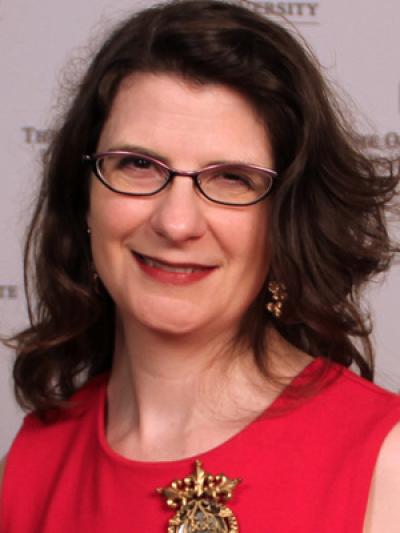
Once a week during autumn and spring semesters, Associate Professor of French Sarah-Grace Heller meets with a group of interested students and community members to read texts written in Medieval French, the form of French from the 1100s-1400s. Anyone can join this group. There is no preparation required, and prior experience in the language is not necessary, though it is more fun if you know a romance language. Heller provides a quick start guide that serves as a “cheat sheet” for grammar and pronunciation.
Although many texts in Old French are very long, Heller tries to choose shorter texts. Often, the group will enjoy a “fabliau,” a short funny story, or a type of text requested based on a member’s research. Recently, members of the group requested to read Marie de France, a major female author of the 12th century. During the meetings, participants take turns reading the texts. For those who would just like to listen, reading is optional. Participants work on their pronunciation, which gets easier as you go along. Heller comments on cultural social aspects of the texts, and points out grammar that is no longer used, but still effects modern languages. Sometimes, the texts allow for a comparison between Medieval French and Latin as well as other Romance languages.
Any given text gives way to lots of discussion. Beyond the social and historical contexts of each piece, the group can trace the language as it transitioned. Medieval French was constantly changing. In addition, pronunciation was different from one county to another. Some texts allow the reader to trace how Old French influenced English in the Norman age, others show connections with Italian merchants.
Heller teaches courses on Medieval French and Occitan French. While some texts studied in the group are related to those that she teaches in class, the reading group goes beyond her course syllabi as there is so much more to explore. In the past, Heller has also offered an Old Occitan reading group. Occitan was a language used in the south of France and it is closer to Catalan. It was the language of the Troubadours, great poets of courtly love.
To join the group all one has to do is reach out to Heller. At the moment, about 25 people are members of the group, and 8-10 generally come to a session. The membership is wonderfully diverse. FRIT’s graduate students Genevieve Berendt and Lawrence Gianangeli attend, as well as several graduate students from the Department of English. Some are members of the community who are scholars in their spare time, others are people who are interested in languages and history. Several undergraduate students also attend, as well as several alumni.
If you are interested in reading in Medieval French, interested about that area of the world, or about the history of language, don’t be shy about joining the group! Meetings last one hour and are fun for everyone, regardless of language experience and whether your current work is related to the study of French.
